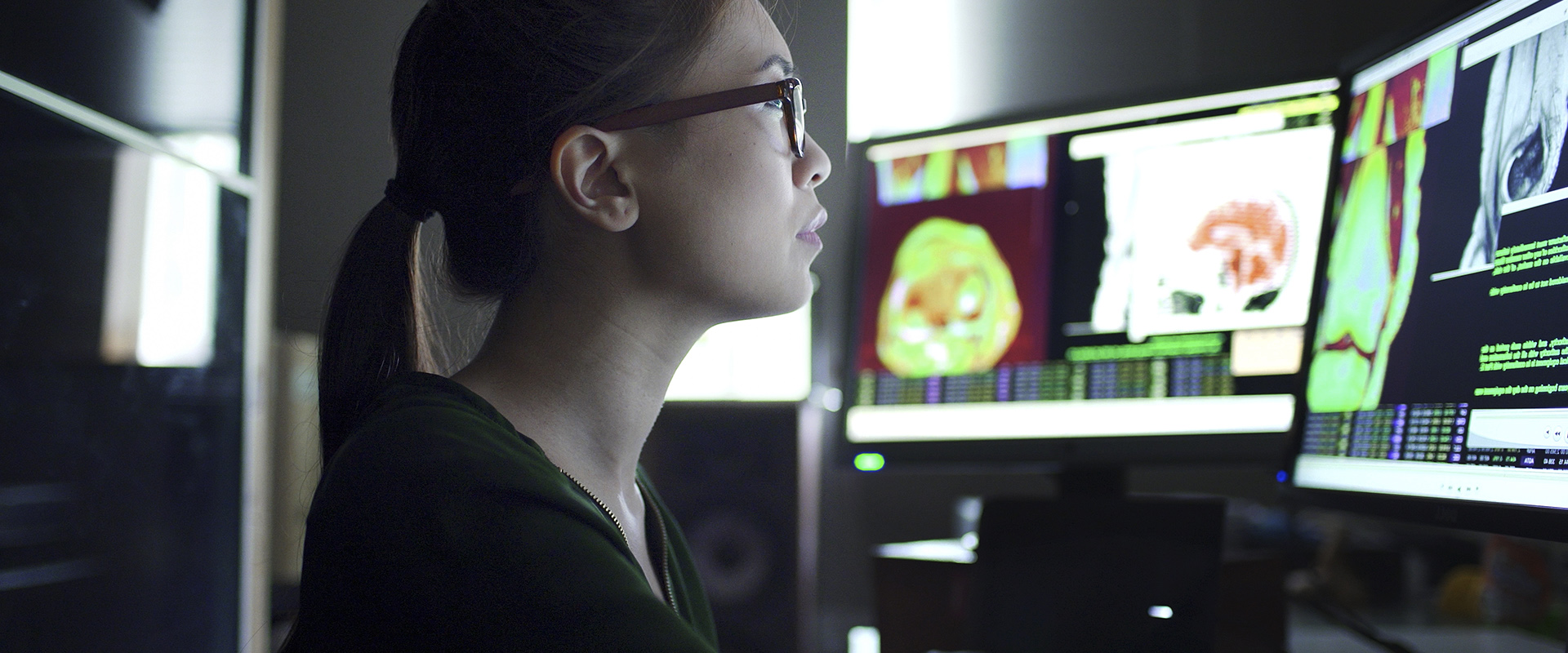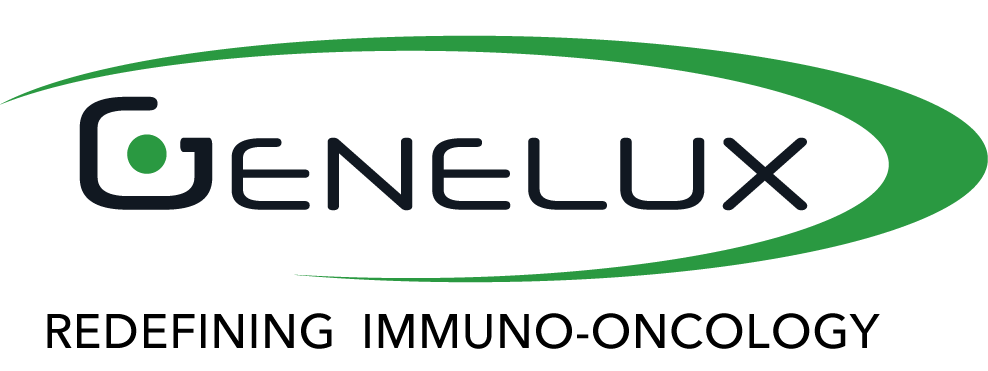
Clinical Trials
Olvi-Vec has been studied in multiple early- and mid-phase clinical trials via regional and systemic deliveries, as a monotherapy and in combination with other therapies, in approximately 150 patients with a variety of cancer types.
There are several key documented takeaways from all our trials that apply, irrespective of the route of administration, dosing regimen or cancer type. Olvi-Vec was:
- observed to be well tolerated, whether administered in a single dose or multiple doses per cycle, with no MTD reached in any of the trials and no significant issues with virus shedding into the environment;
- demonstrated to infect and selectively kill tumor cells, initiate an antitumoral response, and modulate the tumor microenvironment, including re-sensitizing certain tumors to chemotherapy;
- observed to have a benefit on disease control (including tumor growth reduction), progression-free survival (PFS), overall survival (OS) and other clinical benefits in a monotherapy setting; and
- shown to enhance chemotherapeutic activities in a combination therapy setting.
There were also several key documented takeaways from our trials in which Olvi-Vec was systemically administered. Olvi-Vec demonstrated:
- virus-dose dependent benefit on overall survival (OS), particularly in patients with lung disease;
- potential to overcome pre-existing anti-vaccinia antibody levels by high and condensed dosing;
- detectable live virus in blood circulation, even at two hours after infusion, allowing ample time for the virus to reach distal metastases; and
- ability to infect tumor tissues and circulating tumor cells.
The following tables summarize the seven human clinical trials conducted with Olvi-Vec.
Protocol Number
GL- ONC1-002/MA (United Kingdom: Phase 1 – NCT00794131)
Indication
Advanced solid tumors
Modality & Route
Monotherapy as intravenous infusion
Results
Well-tolerated and maximum tolerated dose not reached.
Multiple high doses of virus delivered by i.v. route:
- (A) demonstrated to be feasible:
(i) extended PK (overcoming neutralizing antibodies), (ii) confirmed viral infection, replication at tumor sites distal to site of administration and in circulating tumor cells, (iii) induction of proinflammatory response and triggering activation of adaptive immunity - (B) demonstrated to generate anti-tumor activity and clinical benefits, including a virus-dose-dependent overall survival benefit, especially in patients with primary lung cancer or other tumor types with lung metastases
Protocol Number
GL-ONC1-003/MSK (United States: Phase 1 (Investigator Sponsored) – NCT01766739)
Indication
Malignant pleural effusion related either to malignant pleural mesothelioma or metastatic disease
Modality & Route
Monotherapy as intrapleural catheter delivery
Results
Well-tolerated, no dose-limiting toxicities, and maximum tolerated dose not reached
No virus shedding detected
Confirmed viral availability and PK in pleural fluid after multiple high doses of virus delivered by i.v. route:
- Confirmed viral infection and replication in tumor tissues
- Confirmed trend of survival advantage for patients with epithelioid subtype of mesothelioma when compared to well-documented historical data. The median overall survival (mOS) was 22.3 mos vs. historical 14 mos in all epithelioid subtype patients: for those who did not have subsequent surgery, the mOS was 23.4 mos vs. historical 10 mos; and for those who had subsequent surgery, the mOS was 22.3 mos vs. historical 19 mos.
Protocol Number
GL- ONC1-004/TUE (Germany: Phase 1 – NCT01443260)
Indication
Peritoneal carcinomatosis
Modality & Route
Monotherapy as intraperitoneal catheter delivery
Results
Well-tolerated, and no dose-limiting toxicities, and maximum tolerated dose not reached
Confirmed viral infection and replication in tumor tissues and oncolysis of tumor cells; and induction of proinflammatory response and anti-tumor immune response
Confirmed anti-tumor activity
Protocol Number
GL-ONC1-005/UCSD (United States: Phase 1 – NCT01584284)
Indication
Newly diagnosed head and neck cancer
Modality & Route
Combination therapy with intravenous or bolus injection with cisplatin and radiotherapy
Results
Well tolerate and no maximum tolerated dose reached.
No virus shedding detected
Confirmed (i) viral infection and replication of tumor tissues and (ii) induction of proinflammatory response and T-cell activation pathways
Confirmed 90% (17/19) ORR [77% (13/17) with CR], compared to historical of 64% ORR. Favorable PFS and OS as compared to well-documented historical data: The 1-year progression-free survival (PFS) rate was 66%, and 1-year overall survival (OS) rate was 86% in HPV-negative Stage IV patients, relative to historical data, including both Stage III & Stage IV patients, of 1-year PFS at 60%, and 1-year OS at 70%.
Protocol Number
GL- ONC1-011/UCSD (United States: Phase 1 (Investigator Sponsored) – NCT02714374)
Indication
Solid Organ Cancer
Modality & Route
Neoadjuvant monotherapy as intravenous bolus infusion followed by surgical resection of tumor
Results
Well tolerated and no dose-limiting toxicities and maximum tolerated dose not reached
Confirmed feasibility of systemic route of delivery: (i) live virus detected in blood circulation hours after completion of virus infusion; (ii) viral infection and replication in tumor tissues and (iii) induction of increased tumor-infiltrating lymphocytes into virus-infected tumor tissues
Protocol Number
GL- ONC1-021/AHCI (United States: EAP – NCT03420430)
Indication
Advanced cancers (solid tumors & blood cancer)
Modality & Route
Monotherapy as intravenous bolus infusion
Results
Well tolerated and no dose-limiting toxicities and maximum tolerated dose not reached
Confirmed objective response and clinical benefit of monotherapy and immunochemotherapy
Protocol Number
GL–ONC1-015/AHCI (United States: Phase 1b/2 – NCT02759588)
Indication
Platinum resistant/ refractory ovarian cancer, fallopian cancer or primary peritoneal carcinomatosis
Modality & Route
IP Infusion as Monotherapy or as combination therapy with carboplatin doublet chemotherapy + bevacizumab
Results
Primary endpoints met
Well tolerated and no dose-limiting toxicities and maximum tolerated dose not reached
Confirmed trend of favorable PFS, ORR and OS. The mPFS was 11.0 mos, ORR was 54%, and OS was 15.7 mos as compared to well-documented historical data <4 mos, <20%, < 12 mos, respectively; and as compared to a mPFS of 4.5 mos on the patients’ immediate prior line of therapy (historically, mPFS generally decreases with each subsequent line of therapy.
Exploratory Objectives:
- Demonstrated viral infection and replication in tumor tissues, and oncolysis of tumor cells
- Demonstrated virus-mediated modulation of tumor immune microenvironment; induction of anti-tumor immune response
The diverse Olvi-Vec clinical program has yielded data that informs our clinical development strategy and future trial design in multiple indications. For more information see our Corporate Presentation.



